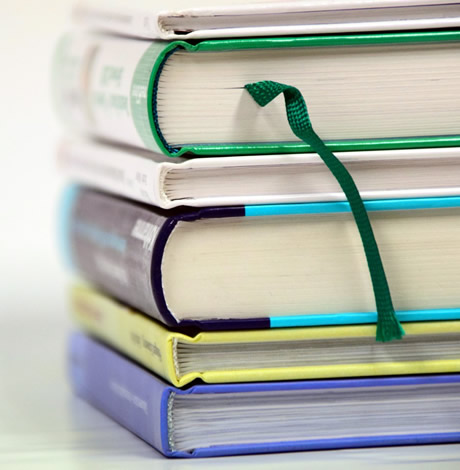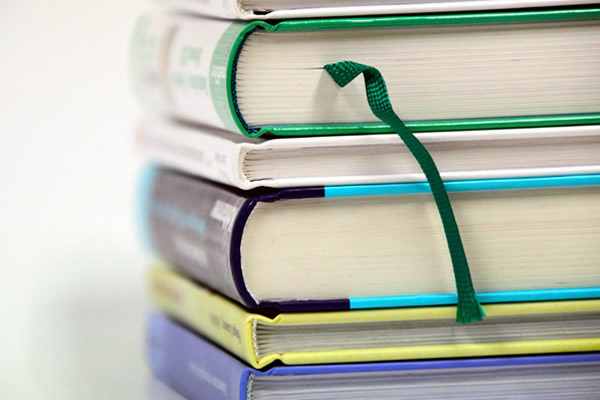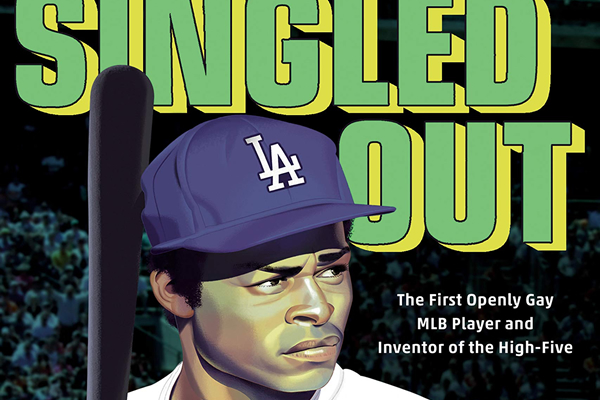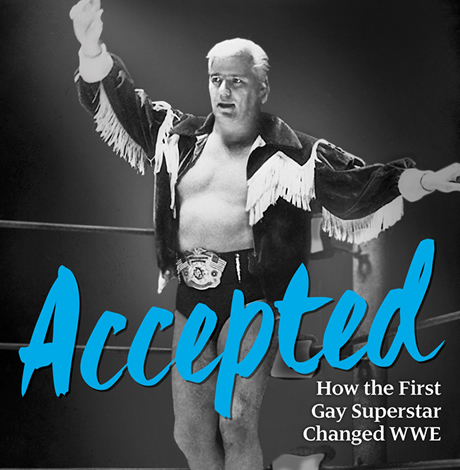Books
Boredom-busting book suggestions
These titles will help get you through the COVID-19 blues


Hunker down.
That’s what you’ll be doing for the immediate future: trying to stay well or get well or just waiting. You’ve had enough TV and the pantry’s as clean as it’ll ever get, so maybe it’s time to find something to read. Here are some suggestions:
Fiction
If you’re a fan of unusual thrillers, look for “Please See Us” by Caitlin Mullen. It’s the story of two dead women who have not yet been found in their marshy grave. But they know what’s going on, and they know they won’t be alone for long. Oh, and they know who killed them. Also, thriller fans, get “Journey of the Pharaohs” by the late Clive Cussler and Graham Brown. If you’ve ever read a Cussler book, you know what you’re in for.
“The Love Story of Missy Charmichael” by Beth Morrey is a sweetheart of a book. It’s about a 79-year-old woman who’s largely alone; her children are scattered or estranged and she’s old enough to believe that reflection on her past is all she has left. And then she meets a dog.
The fan of historical fiction will love having “Westering Women” by Sandra Dallas on the sofa. It’s the story of a young seamstress and her small daughter, both of whom travel with a caravan of other women to answer the call for “eligible women” out west in the 1800s. Adventure, love, action, can you resist?
Non-fiction
Music fans will love hunkering down with “The Beatles from A to Zed” by Peter Asher. It’s an easy-breezy book on the Fab Four, but indirectly, which means you’ll get some little-discussed, little-known tales that fans will need to know. Here’s another book that’s perfect for the music fan: “She Can Really Lay It Down” by Rachel Frankel, a book about music’s female rebels and rockers. Or look for “1973: Rock at the Crossroads” by Andrew Grant Jackson, a book that’s part history, part music history and all perfect nostalgia.
For the reader who loves a good true-medicine tale, try “The Open Heart Club” by Gabriel Brownstein. Written by a man whose life was saved by cardiac surgery when he was just a small child, this book looks at heart surgery in the distant past and what’s being done to cure the heart now. Another book to look for, whether you’re thinking it’s time to quit smoking, you’re fascinated about why anyone would start or you’re just plain in need of something different is “The Cigarette: A Political History” by Sarah Milov.
For parents or parents-to-be, how about something different: “Designing Babies” by Robert L. Klitzman, M.D. is a guidebook of sorts, filled with choices that potential noms and dads can make when taking that big step toward parenthood. But it’s also a book about how tomorrow’s generations are being affected by technology today. Also, try “9 Months In, 9 Months Out” by Vanessa Lobue, a scientific look at pregnancy and being a parent, written by a scientist.
The reader who hates the fact that church has to be missed will enjoy having “The Knights of Columbus: An Illustrated History” by Andrew T. Walther and Maureen H. Walther around. It’s a large, beautiful retrospective on the “K of C,” its contributions, and many of the leaders who influenced the Knights through the decades.
Hang on to hope that this will be over soon, but reading “Nomad: Designing a Home for Escape and Adventure” by Emma Reddington. This heavy, beautiful book is filled with ideas for the person who wants to convert a bus, van, or boat into a permanent living space that’s movable. You can dream, can’t you? While you’re reading that one, keep “Making a Life” by Melanie Falick nearby; it’s a book on crafting, art and subsisting on that which you create.
Depending on the view from your bed or sofa, “On Flowers” by Amy Merrick might be something to lift your spirits. It’s filled with photos and its words reflect an appreciation for all things colorful. The book to read after that: “White Feathers: The Nesting Lives of Tree Swallows” by Bernd Heinrich, and learn about your feathered friends.
Another book to find, one that’s perfect for environmentalists, is “Cat Tale: The Wild, Weird Battle to Save the Florida Panther” by Craig Pittman. Filled with humor, action, and a pretty kitty, it’s great for animal lovers, too. And this: “Running with Sherman” by Christopher McDougall is a story of a donkey and you know you want it.
If you’re thinking that now’s the time to consider a good break and a new business, “Discipline Strategy” by Timothy L. Coomer, is a worthwhile read and a good place to start. It’s about decision-making, goal-setting, and doing the best work you can offer to your customers.
Sports fans, there’s no doubt that you’re feeling bereft without your favorite team on TV, so why not pick up a sports book instead? One like “Games of Deception” by Andrew Maraniss. It’s the tale of Nazi Germany, World War, and the United States’ first Olympic basketball team. Another book for the sports fan is “The Eighth Wonder of the World: The True Story of André the Giant:” by Bertrand Hėbert and Pat LaPrade. It’s a tale of wrestling and the real man who made it fun to watch.
If this quarantine is compounded by loss, look for “Finding Meaning: The Sixth Stage of Grief” by David Kessler. It’s a book for healing that takes things just one step beyond old, conventional grieving.
If you’re already tired of the same old meals, look for “Meals, Music, and Muses: Recipes from My African American Kitchen” by Alexander Smalls. There’s really only one thing you can say about it: yum.
Books
Two new books on dining out LGBTQ-style
Visit nightclubs, hamburger joints, and a bathhouse that feeds customers

‘What is Queer Food? How We Served a Revolution’
By John Birdsall
c.2025, W.W. Norton
$29.99/304 pages
‘Dining Out: First Dates, Defiant Nights, and Last Call Disco Fries at America’s Gay Restaurants’
By Erik Piepenburg
c.2025, Grand Central
$30/352 pages
You thought a long time about who sits where.
Compatibility is key for a good dinner party, so place cards were the first consideration; you have at least one left-hander on your guest list, and you figured his comfort into your seating chart. You want the conversation to flow, which is music to your ears. And you did a good job but, as you’ll see with these two great books on dining LGBTQ-style, it’s sometimes not who sits where, but whose recipes were used.
When you first pick up “What is Queer Food?” by John Birdsall, you might miss the subtitle: “How We Served a Revolution.” It’s that second part that’s important.

Starting with a basic gay and lesbian history of America, Birdsall shows how influential and (in)famous 20th century queer folk set aside the cruelty and discrimination they received, in order to live their lives. They couldn’t speak about those things, he says, but they “sat down together” and they ate.
That suggested “a queer common purpose,” says Birdsall. “This is how who we are, dahling, This is how we feed our own. This is how we stay alive.”
Readers who love to cook, bake or entertain, collect cookbooks, or use a fork will want this book. Its stories are nicely served, they’re addicting, and they may send you in search of cookbooks you didn’t know existed.
Sometimes, though, you don’t want to be stuck in the kitchen, you want someone else to bring the grub. “Dining Out” by Erik Piepenburg is an often-nostalgic, lively look at LGBTQ-friendly places to grab a meal – both now and in the past.

In his introduction, Piepenburg admits that he’s a journalist, “not a historian or an academic,” which colors this book, but not negatively. Indeed, his journeys to “gay restaurants” – even his generous and wide-ranging definitions of the term – happily influence how he presents his narrative about eateries and other establishments that have fed protesters, nourished budding romances, and offered audacious inclusion.
Here, there are modern tales of drag lunches and lesbian-friendly automats that offered “cheap food” nearly a century ago. You’ll visit nightclubs, hamburger joints, and a bathhouse that feeds customers on holidays. Stepping back, you’ll read about AIDS activism at gay-friendly establishments, and mostly gay neighborhood watering holes. Go underground at a basement bar; keep tripping and meet proprietors, managers, customers and performers. Then take a peek into the future, as Piepenburg sees it.
The locales profiled in “Dining Out” may surprise you because of where they can be found; some of the hot-spots practically beg for a road trip.
After reading this book, you’ll feel welcome at any of them.
If these books don’t shed enough light on queer food, then head to your favorite bookstore or library and ask for help finding more. The booksellers and librarians there will put cookbooks and history books directly in your hands, and they’ll help you find more on the history and culture of the food you eat. Grab them and you’ll agree, they’re pretty tasty reads.
The Blade may receive commissions from qualifying purchases made via this post.

You’re going to be on your feet a lot this month.
Marching in parades, dancing in the streets, standing up for people in your community. But you’re also likely to have some time to rest and reflect – and with these great new books, to read.
First, dip into a biography with “Marsha: The Joy and Defiance of Marsha P. Johnson” by Tourmaline (Tiny Rep Books, $30), a nice look at an icon who, rumor has it, threw the brick that started a revolution. It’s a lively tale about Marsha P. Johnson, her life, her activism before Stonewall and afterward. Reading this interesting and highly researched history is a great way to spend some time during Pride month.
For the reader who can’t live without music, try “The Dad Rock That Made Me a Woman” by Niko Stratis (University of Texas Press, $27.95), the story of being trans, searching for your place in the world, and finding it in a certain comfortable genre of music. Also look for “The Lonely Veteran’s Guide to Companionship” by Bronson Lemer (University of Wisconsin Press, $19.95), a collection of essays that make up a memoir of this and that, of being queer, basic training, teaching overseas, influential books, and life.
If you still have room for one more memoir, try “Walk Like a Girl” by Prabal Gurung (Viking, $32.00). It’s the story of one queer boy’s childhood in India and Nepal, and the intolerance he experienced as a child, which caused him to dream of New York and the life he imagined there. As you can imagine, dreams and reality collided but nonetheless, Gurung stayed, persevered, and eventually became an award-winning fashion designer, highly sought by fashion icons and lovers of haute couture. This is an inspiring tale that you shouldn’t miss.
No Pride celebration is complete without a history book or two.
In “Trans History: From Ancient Times to the Present Day” by Alex L. Combs & Andrew Eakett ($24.99, Candlewick Press), you’ll see that being trans is something that’s as old as humanity. One nice part about this book: it’s in graphic novel form, so it’s lighter to read but still informative. Lastly, try “So Many Stars: An Oral History of Trans, Nonbinary, Genderqueer, and Two-Spirit People of Color” by Caro De Robertis (Algonquin Books of Chapel Hill. $32.00) a collection of thoughts, observations, and truths from over a dozen people who share their stories. As an “oral history,” you’ll be glad to know that each page is full of mini-segments you can dip into anywhere, read from cover to cover, double-back and read again. It’s that kind of book.
And if these six books aren’t enough, if they don’t quite fit what you crave now, be sure to ask your favorite bookseller or librarian for help. There are literally tens of thousands of books that are perfect for Pride month and beyond. They’ll be able to determine what you’re looking for, and they’ll put it directly in your hands. So stand up. March. And then sit and read.
a&e features
James Baldwin bio shows how much of his life is revealed in his work
‘A Love Story’ is first major book on acclaimed author’s life in 30 years

‘Baldwin: A Love Story’
By Nicholas Boggs
c.2025, FSG
$35/704 pages
“Baldwin: A Love Story” is a sympathetic biography, the first major one in 30 years, of acclaimed Black gay writer James Baldwin. Drawing on Baldwin’s fiction, essays, and letters, Nicolas Boggs, a white writer who rediscovered and co-edited a new edition of a long-lost Baldwin book, explores Baldwin’s life and work through focusing on his lovers, mentors, and inspirations.
The book begins with a quick look at Baldwin’s childhood in Harlem, and his difficult relationship with his religious, angry stepfather. Baldwin’s experience with Orilla Miller, a white teacher who encouraged the boy’s writing and took him to plays and movies, even against his father’s wishes, helped shape his life and tempered his feelings toward white people. When Baldwin later joined a church and became a child preacher, though, he felt conflicted between academic success and religious demands, even denouncing Miller at one point. In a fascinating late essay, Baldwin also described his teenage sexual relationship with a mobster, who showed him off in public.
Baldwin’s romantic life was complicated, as he preferred men who were not outwardly gay. Indeed, many would marry women and have children while also involved with Baldwin. Still, they would often remain friends and enabled Baldwin’s work. Lucien Happersberger, who met Baldwin while both were living in Paris, sent him to a Swiss village, where he wrote his first novel, “Go Tell It on the Mountain,” as well as an essay, “Stranger in the Village,” about the oddness of being the first Black person many villagers had ever seen. Baldwin met Turkish actor Engin Cezzar in New York at the Actors’ Studio; Baldwin later spent time in Istanbul with Cezzar and his wife, finishing “Another Country” and directing a controversial play about Turkish prisoners that depicted sexuality and gender.
Baldwin collaborated with French artist Yoran Cazac on a children’s book, which later vanished. Boggs writes of his excitement about coming across this book while a student at Yale and how he later interviewed Cazac and his wife while also republishing the book. Baldwin also had many tumultuous sexual relationships with young men whom he tried to mentor and shape, most of which led to drama and despair.
The book carefully examines Baldwin’s development as a writer. “Go Tell It on the Mountain” draws heavily on his early life, giving subtle signs of the main character John’s sexuality, while “Giovanni’s Room” bravely and openly shows a homosexual relationship, highly controversial at the time. “If Beale Street Could Talk” features a woman as its main character and narrator, the first time Baldwin wrote fully through a woman’s perspective. His essays feel deeply personal, even if they do not reveal everything; Lucian is the unnamed visiting friend in one who the police briefly detained along with Baldwin. He found New York too distracting to write, spending his time there with friends and family or on business. He was close friends with modernist painter Beauford Delaney, also gay, who helped Baldwin see that a Black man could thrive as an artist. Delaney would later move to France, staying near Baldwin’s home.
An epilogue has Boggs writing about encountering Baldwin’s work as one of the few white students in a majority-Black school. It helpfully reminds us that Baldwin connects to all who feel different, no matter their race, sexuality, gender, or class. A well-written, easy-flowing biography, with many excerpts from Baldwin’s writing, it shows how much of his life is revealed in his work. Let’s hope it encourages reading the work, either again or for the first time.
-

 U.S. Supreme Court3 days ago
U.S. Supreme Court3 days agoSupreme Court to consider bans on trans athletes in school sports
-

 Out & About3 days ago
Out & About3 days agoCelebrate the Fourth of July the gay way!
-

 Virginia3 days ago
Virginia3 days agoVa. court allows conversion therapy despite law banning it
-

 Maryland5 days ago
Maryland5 days agoLGBTQ suicide prevention hotline option is going away. Here’s where else to go in Md.








